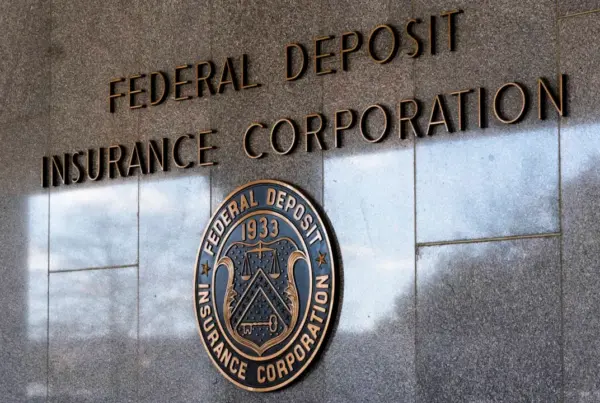FDIC’s Proposed Rules on Brokered Deposits: Key Insights for Financial Institutions
Introduction
On August 23, 2024, the Federal Deposit Insurance Corporation (FDIC) proposed significant regulatory changes concerning brokered deposits, aimed at enhancing the stability of the banking system. This rule is a response to ongoing concerns regarding the risks associated with brokered deposits, particularly in light of recent financial disruptions. The proposed changes build upon previous regulations, including amendments to the Federal Deposit Insurance Act and prior enforcement actions that have shaped the regulatory landscape for financial institutions.
The primary concern addressed by this regulatory action is the potential for increased risk to the Deposit Insurance Fund (DIF) stemming from the rapid growth of brokered deposits, especially during periods of economic uncertainty. The FDIC seeks to ensure that banks engage in prudent risk management practices while maintaining access to necessary funding sources.
Key Regulatory Changes & Analysis
1. Expansion of the Definition of Deposit Broker
The FDIC proposes to broaden the definition of a deposit broker to include a wider array of entities that facilitate the placement of deposits.
- Previous Definition: Under the existing rule, a deposit broker was primarily defined as an entity that places deposits with insured depository institutions for the purpose of obtaining a fee.
- New Definition: The proposed rule extends this definition to encompass additional intermediaries, including certain fintech companies and other financial service providers.
This change aims to capture a broader spectrum of activities that could pose risks to the DIF.
2. Enhanced Reporting Requirements
The proposed regulations introduce more stringent reporting obligations for banks that utilize brokered deposits.
- New Reporting Mandates: Banks will be required to disclose detailed information regarding the sources and amounts of brokered deposits.
- Impact on Compliance: This increased transparency is designed to facilitate better monitoring by the FDIC and mitigate risks associated with sudden withdrawals.
3. Restrictions on High-Risk Institutions
The FDIC intends to impose restrictions on institutions deemed to be operating in a high-risk manner concerning brokered deposits.
- Criteria for High-Risk Designation: Factors may include the institution’s capital levels, asset quality, and overall risk profile.
- Consequences: High-risk banks may face limitations on their ability to accept brokered deposits, thereby influencing their funding strategies.
Legal and Industry Implications
The proposed rule presents several implications for compliance and operational practices within the financial sector:
- Compliance Burdens: Financial institutions may face increased administrative costs associated with enhanced reporting and compliance measures.
- Legal Risks: The expansion of the definition of deposit broker could lead to legal challenges, particularly from fintech companies that may find their business models affected.
- Recent Enforcement Actions: The FDIC’s heightened scrutiny on brokered deposits may lead to more frequent examinations and potential enforcement actions against non-compliant institutions.
To mitigate these risks, law firms and financial institutions should proactively assess their exposure to brokered deposits and evaluate their compliance frameworks.
Recommended Actions & Compliance Strategies
Affected banks and financial institutions should consider the following actions in response to the proposed rule:
- Conduct a Compliance Audit: Review current practices related to brokered deposits and assess alignment with the proposed definitions and reporting requirements.
- Update Contracts and Policies: Revise agreements with deposit brokers and related parties to reflect the new regulatory landscape.
- Engage in Public Comment: Stakeholders are encouraged to submit comments to the FDIC during the public comment period to voice concerns or support for the proposed changes. This engagement can influence the final rule.
Key Deadlines
- Public Comment Period: Ensure submission of comments by November 21, 2024.
- Implementation Timeline: Monitor the FDIC’s announcements regarding the finalization of the rule and subsequent compliance deadlines.
Conclusion & Next Steps
The FDIC’s proposed changes to brokered deposit regulations mark a significant shift in the regulatory framework governing financial institutions. Key takeaways include the expansion of the deposit broker definition, enhanced reporting requirements, and restrictions for high-risk institutions.
Financial institutions should prepare for potential compliance challenges and operational adjustments as the rule progresses through the regulatory process. Stakeholders should remain vigilant for further developments and consider participating in the public comment process to shape the final outcome of these regulations.
As the regulatory landscape evolves, ongoing legal and legislative actions may impact the enforcement of these rules, warranting close attention from all affected parties.


